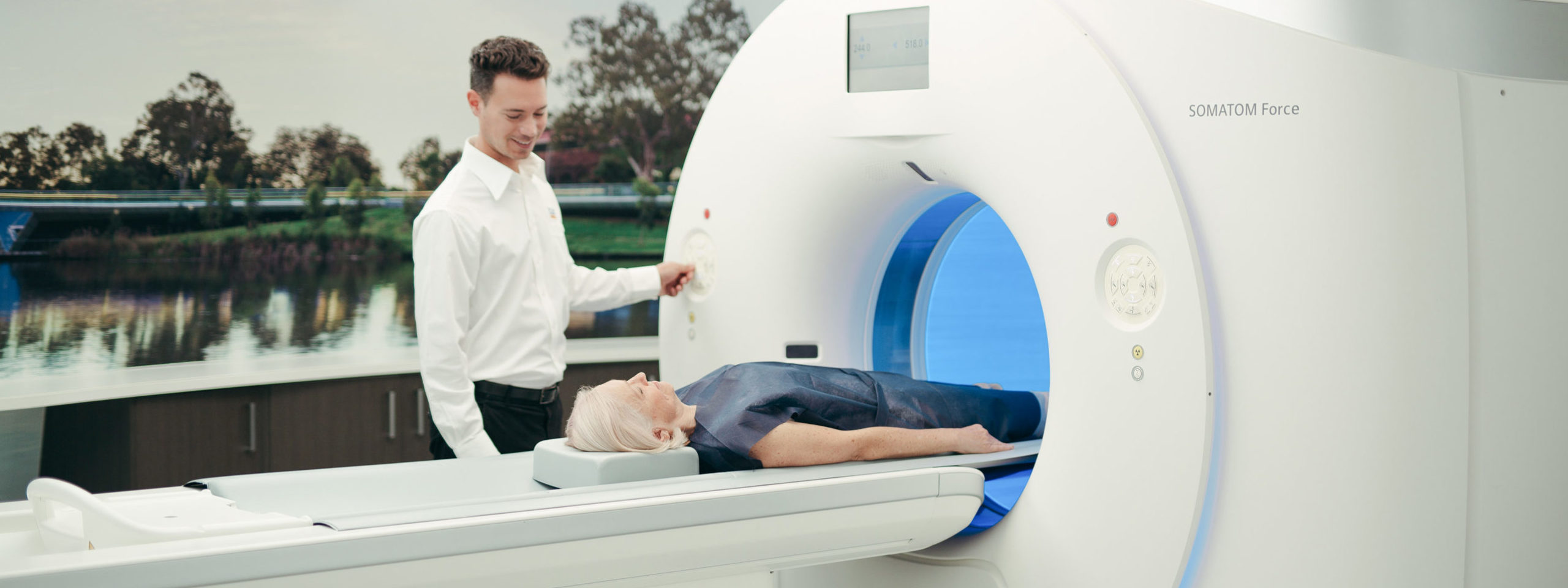A CT guided deep tissue/organ biopsy involves taking a tiny sample of tissue (cells in your body) through a needle. This may be a fine needle aspiration (FNA) or a core biopsy. The needle is guided into place using an ultrasound or CT.
The tissue sample is sent to a pathology laboratory where to be analysed. Results are usually available in 2 to 3 days. The report will be sent to your referring doctor who will then give these results to you. The pathology company may also charge a gap for these services. Please discuss this with us if you have any questions.
Procedure
You will be positioned in the best way to access the area to be biopsied. The area will be cleaned with antiseptic and local anaesthetic given. For a fine needle aspiration, the radiologist will use ultrasound or CT to guide a needle into the correct area. If a core biopsy is performed (using a hollow needle to remove a tissue sample), a tiny incision (cut) will be made in the skin before the core needle is inserted. It is often necessary to make more than one pass of the needle to get enough tissue sample.
Before your Scan
It is essential that your previous x-ray, CT and ultrasound films are available at the time of the biopsy. Please bring these with you if you have them.
You may be asked to fast (not eat or drink anything) for 6 hours prior to the procedure.
Please tell us if you are on medication to thin your blood (e.g. Warfarin, Aspirin or Clopidogrel). You may need to stop this before the procedure, but only after discussion with your doctor.
Before the biopsy, you may be asked to change into an examination gown for your comfort, and to ensure clothing does not affect the images. You may also be asked to remove jewellery, eye-glasses and any metal objects that might interfere with the imaging.
Day hospital admission may be required. It is important that you have someone to drive you home after the procedure.
Risks / Side effects
- Potential risks include: Infection – the biopsy uses aseptic technique (strict infection control practices) to minimise the risk of infection.
- Bruising – there may be mild bruising at the injection site.
- Organ or blood vessel puncture – rarely, the needle may puncture an organ or blood vessel.
- Bleeding – rarely, excessive bleeding can occur into the biopsy site and may require drainage, blood transfusion or surgery.
The biopsy may not get an adequate sample of tissue, which may require you to have a repeat biopsy.
Other Information
You should avoid strenuous activity for 24 hours following the biopsy.
You may remove your dressing/band-aid that night or the next day.
- You may experience some discomfort after the procedure. If required, a simple analgesic such as paracetamol (Panadol) should be sufficient. Do NOT take Aspirin. An ice-pack should also provide some relief. Bleeding and infection are potential complications. Further bleeding after discharge (when you go home) is unlikely and excessive bleeding occurring at the biopsy site is . It is important to note that infection is a potential and serious side effect. If you notice any increased redness, swelling, fever or pain, notify your referring doctor or immediately call the clinic where the injection was performed.
- If your biopsy was in the abdomen, increasing shoulder tip pain should also be reported.
If you have not been contacted about your results within 1 to 2 weeks, please contact your referrer.
Are you ready to make your CT (Computed Tomography) Scan appointment?
Our online booking platform allows you to quickly and easily make an appointment online.



